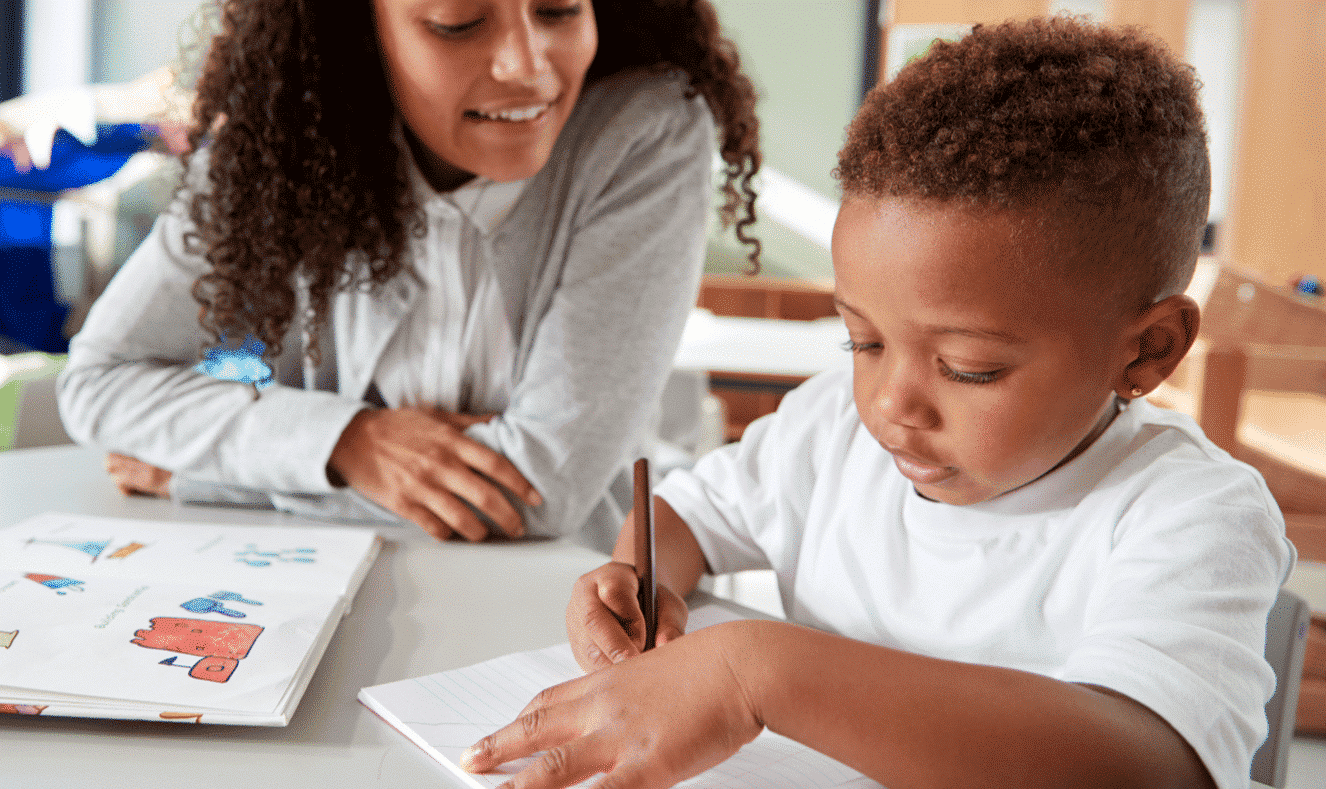As an experienced human writer, I firmly believe that critical thinking skills are essential for children to thrive in today’s rapidly changing world. In this comprehensive guide, we will explore the importance of critical thinking, its benefits, and practical strategies to help children develop these vital skills.
READ ALSO :
The Importance of Critical Thinking Skills in Children
Critical thinking is the ability to analyze information, evaluate evidence, and make informed decisions. It is a fundamental skill that enables children to navigate the complexities of life, solve problems, and adapt to new challenges. In a world that is constantly evolving, the need for critical thinking has never been more crucial.
By fostering critical thinking skills in children, we empower them to become independent thinkers, problem-solvers, and decision-makers. These skills not only benefit them academically but also prepare them for success in their future careers and personal lives.
What is Critical Thinking?
Critical thinking is a multifaceted process that involves several key components:
- Analysis: The ability to break down information, identify patterns, and understand the underlying concepts.
- Evaluation: The capacity to assess the validity, reliability, and relevance of information and ideas.
- Reasoning: The skill to draw logical conclusions, make inferences, and consider alternative perspectives.
- Problem-Solving: The aptitude to identify problems, explore solutions, and make informed decisions.
- Creativity: The ability to think outside the box, generate innovative ideas, and approach challenges from a fresh perspective.
By developing these critical thinking skills, children can navigate the complexities of the modern world with confidence and resilience.
Benefits of Developing Critical Thinking Skills in Children
Investing in the development of critical thinking skills in children can yield numerous benefits, both in the short and long term:
- Academic Success: Critical thinking skills enhance a child’s ability to understand and apply concepts, leading to better academic performance across various subjects.
- Improved Decision-Making: The ability to analyze information, evaluate options, and make informed choices empowers children to make better decisions in their daily lives.
- Enhanced Creativity and Innovation: Critical thinking fosters the ability to think outside the box, generating unique solutions and ideas.
- Stronger Problem-Solving Abilities: Children with well-developed critical thinking skills are better equipped to identify problems, explore alternative solutions, and implement effective strategies.
- Increased Adaptability: Critical thinkers are more flexible and resilient, able to adapt to changing circumstances and overcome challenges.
- Lifelong Learning: Critical thinking skills enable children to become independent, lifelong learners, continuously seeking knowledge and expanding their understanding.
By nurturing these essential skills, we can help children unlock their full potential and prepare them for success in the 21st century.
Strategies for Helping Children Develop Critical Thinking Skills
Developing critical thinking skills in children is a gradual process that requires a multifaceted approach. Here are some effective strategies to support this crucial development:
- Incorporate Critical Thinking into Everyday Activities:
- Encourage children to ask questions, explore their curiosity, and seek explanations for the world around them.
- Engage them in discussions that challenge their assumptions and prompt them to consider alternative perspectives.
- Encourage them to solve problems and make decisions independently, guiding them through the process when necessary.
- Promote Questioning Techniques:
- Teach children how to ask thoughtful questions that go beyond basic facts and delve into the underlying reasons and implications.
- Model effective questioning skills by asking open-ended questions that encourage children to think critically.
- Encourage children to question their own assumptions and beliefs, fostering a habit of reflective thinking.
- Encourage Problem-Solving and Decision-Making Skills:
- Present children with age-appropriate challenges and problems to solve, guiding them through the process of identifying the problem, exploring solutions, and evaluating the outcomes.
- Encourage children to make decisions independently, providing support and feedback to help them reflect on their thought process.
- Celebrate their efforts and successes, regardless of the outcome, to reinforce the importance of the critical thinking process.
- Integrate Critical Thinking into Educational Experiences:
- Collaborate with educators to ensure that critical thinking is woven into the curriculum, with opportunities for hands-on learning, project-based activities, and inquiry-based exploration.
- Encourage teachers to use teaching methods that promote critical thinking, such as Socratic discussions, case studies, and problem-based learning.
- Provide resources and support for teachers to develop their own critical thinking skills and integrate them into their instructional practices.
- Offer Exposure to Diverse Perspectives:
- Expose children to a variety of perspectives, cultures, and experiences, encouraging them to consider different viewpoints and challenge their own biases.
- Encourage children to engage in respectful discussions and debates, learning to articulate their own ideas while also listening to and understanding others.
- Foster an environment of intellectual curiosity and openness, where children feel safe to express their thoughts and explore new ideas.
By implementing these strategies, we can help children develop the critical thinking skills they need to thrive in the 21st century.
Promoting Critical Thinking through Questioning Techniques
Effective questioning is a powerful tool for fostering critical thinking in children. By asking the right questions, we can guide them to analyze information, evaluate evidence, and draw their own conclusions. Here are some key questioning techniques to incorporate:
- Open-Ended Questions: Encourage children to explore and expand their thinking by asking questions that begin with “why,” “how,” “what if,” and “what do you think?”
- Probing Questions: Follow up on children’s initial responses with additional questions that delve deeper into their thought processes, such as “Can you explain that further?” or “What evidence supports your conclusion?”
- Reflective Questions: Prompt children to reflect on their own thinking and decision-making by asking questions like “How did you arrive at that solution?” or “What made you choose that option?”
- Hypothetical Questions: Challenge children to consider alternative scenarios and think about the implications by asking “What would happen if…?” or “How might things be different if…?”
- Clarifying Questions: Encourage children to clarify their understanding or expand on their ideas by asking “Can you give me an example of what you mean?” or “Can you rephrase that in a different way?”
By incorporating these questioning techniques into everyday interactions and educational experiences, we can cultivate a culture of critical thinking and empower children to become confident, independent thinkers.
Encouraging Problem-Solving and Decision-Making Skills
Developing problem-solving and decision-making skills is a crucial component of critical thinking. By providing children with opportunities to navigate challenges and make informed choices, we can help them build the confidence and competence they need to thrive.
Here are some strategies to encourage problem-solving and decision-making skills in children:
- Identify and Define Problems: Encourage children to recognize and articulate the problem at hand, encouraging them to gather relevant information and consider the root causes.
- Explore Possible Solutions: Guide children through the process of generating and evaluating multiple solutions, weighing the pros and cons of each option.
- Implement and Evaluate: Support children as they implement their chosen solution, and then help them reflect on the outcome, considering what worked well and what could be improved.
- Encourage Iterative Thinking: Foster an understanding that problem-solving and decision-making are not linear processes, but rather iterative ones that involve continuous learning and improvement.
- Celebrate Effort and Resilience: Recognize and praise children’s efforts, even if the outcome is not what they expected. Emphasize the importance of perseverance and the learning that takes place throughout the process.
By engaging children in meaningful problem-solving and decision-making experiences, we can help them develop the critical thinking skills they need to navigate the complexities of the modern world.
The Role of Education in Fostering Critical Thinking
The education system plays a crucial role in cultivating critical thinking skills in children. Educators have the power to design learning environments and curricula that prioritize the development of these essential abilities.
Here are some ways in which the education system can foster critical thinking:
- Curriculum Design: Incorporate critical thinking-focused activities, projects, and assessments across all subject areas, ensuring that these skills are integrated throughout the learning experience.
- Instructional Strategies: Encourage educators to use teaching methods that promote critical thinking, such as problem-based learning, Socratic discussions, and case studies.
- Professional Development: Provide ongoing training and support for educators to enhance their own critical thinking skills and learn effective strategies for fostering these abilities in their students.
- Collaborative Learning: Create opportunities for children to engage in group discussions, debates, and collaborative problem-solving, allowing them to learn from their peers and consider diverse perspectives.
- Authentic Assessments: Move beyond traditional testing and incorporate assessments that require children to demonstrate their critical thinking skills through real-world applications and open-ended problem-solving.
- Interdisciplinary Connections: Encourage children to make connections across different subject areas, fostering a holistic understanding of complex issues and the ability to apply critical thinking skills in various contexts.
By prioritizing critical thinking in the education system, we can empower children to become lifelong learners, problem-solvers, and decision-makers, prepared to navigate the challenges of the 21st century.
Resources and Tools for Supporting Critical Thinking Development in Children
Developing critical thinking skills in children can be further supported through the use of various resources and tools. Here are some examples:
- Books and Literature: Expose children to age-appropriate books, stories, and literature that challenge them to think critically, analyze characters and plot, and consider different perspectives.
- Educational Websites and Online Resources: Utilize interactive, engaging websites and online tools that provide opportunities for critical thinking exercises, problem-solving activities, and collaborative learning.
- Hands-On Learning Experiences: Encourage children to engage in hands-on activities, such as science experiments, engineering challenges, and creative projects, that require them to apply critical thinking skills.
- Cognitive Skill-Building Games: Incorporate games and puzzles that target specific cognitive abilities, such as logic, reasoning, and problem-solving, to help children develop critical thinking skills in a fun and engaging way.
- Mentorship and Coaching: Connect children with mentors or coaches who can provide guidance, feedback, and support as they navigate challenging situations and develop their critical thinking abilities.
- Parent-Child Discussions: Encourage parents to engage in meaningful discussions with their children, encouraging them to ask questions, express their thoughts, and consider alternative perspectives.
By utilizing a diverse range of resources and tools, we can create a rich and supportive environment that empowers children to become confident, critical thinkers.
RELATED ARTICLE :
Conclusion: Empowering Children through Critical Thinking Skills
In conclusion, the development of critical thinking skills in children is a vital investment in their future success and well-being. By nurturing these essential abilities, we can empower children to navigate the complexities of the modern world, solve problems, make informed decisions, and reach their full potential.
To start your child’s journey towards developing critical thinking skills, I encourage you to explore the strategies and resources outlined in this guide. Remember, fostering critical thinking is a continuous process, and by working together with educators, caregivers, and the community, we can create a supportive environment that enables children to thrive. Let’s unlock the power of critical thinking and help our children become confident, independent, and resilient individuals who are ready to shape the future.





